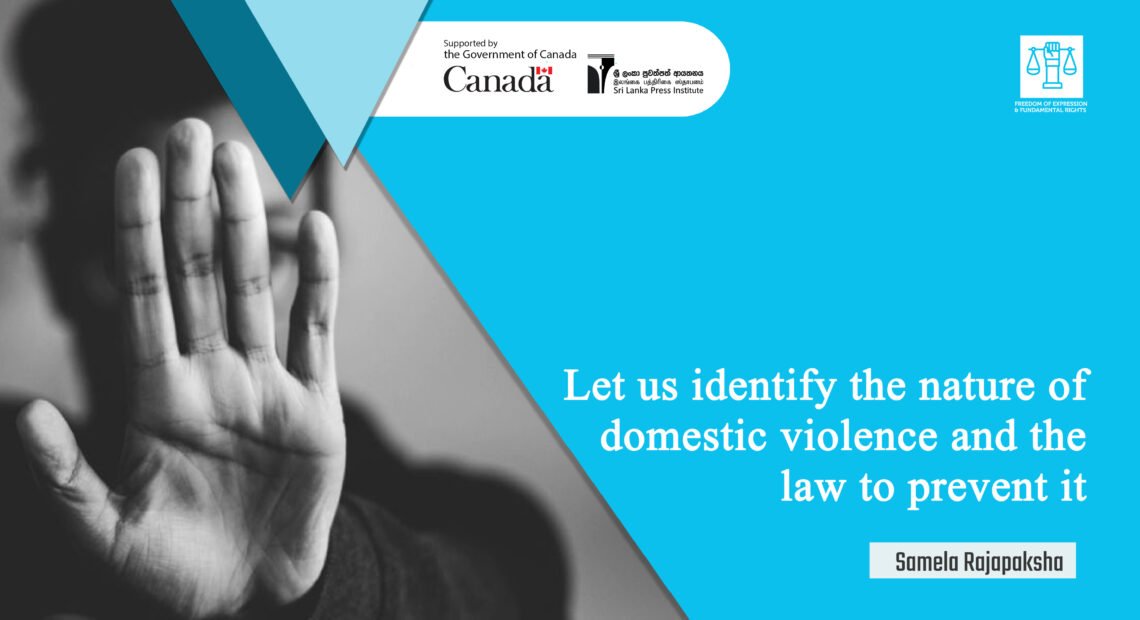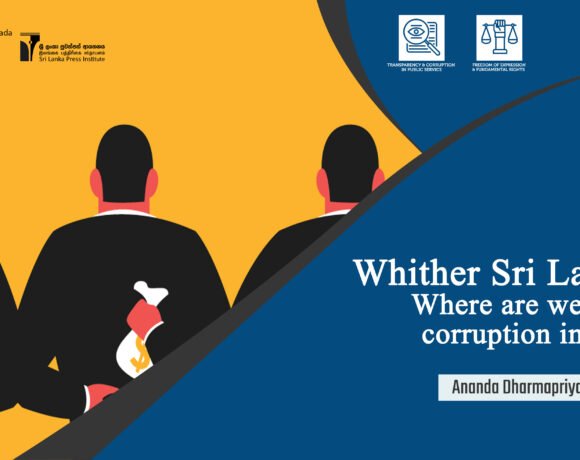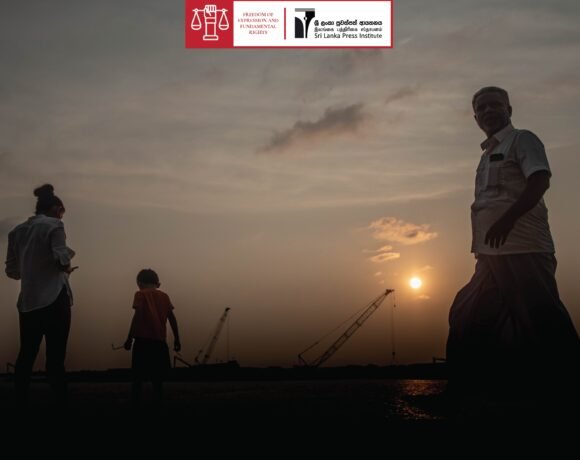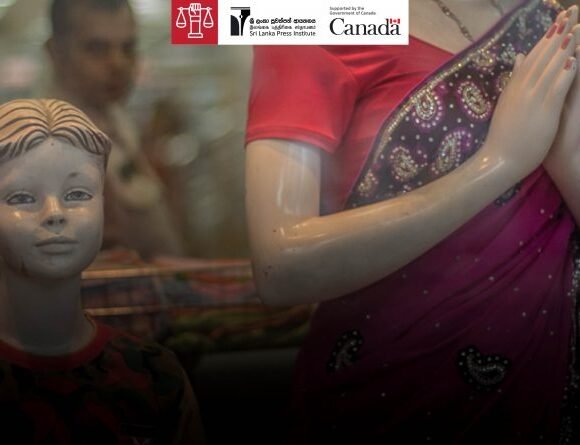Samela Rajapaksha
The main factor that establishes the continuation of human society is the family. If there is no peace and harmony among family members, it is a farce that people put on. Within the family, which is the basic formational unit of society, even though male and female family members act uniquely within one unit, owing to reasons of psychological and physiological factors arising in them, they direct violence towards each other. Domestic violence is not just physical violence. Its intention and purpose are to assert power and obtain control over one’s partner or spouse or a family member. Normally, when people think about domestic violence, they generally think that causing visible injuries from physical assaults is domestic violence. However, domestic violence is physical, sexual, psychological, economic and mental acts or acts of unduly influencing other persons. On the one hand, this is a form of abuse and on the other, there are several behavioural categories pertaining to abuse. They are,
- Control
- Violence, physical violence
- Sexual abuse
- Psychological abuse and intimidation
- Verbal abuse, force, threats and blame
- Using male privilege
- Economic abuse
Within the realm of a married couple living together or loving each other, violence impacts people from all socio-economic backgrounds and levels of education. Domestic violence disregards age, race/ethnicity/nationality, gender, sexual orientation, belief or class; anyone can become a victim of domestic violence.
According to national statistics, in the United States, every minute, around 20 persons suffer physical abuse at the hands of an intimate partner. In a year, this happens to around 10 million, women and men. One out of every four women and one out of every nine men suffer impacts such as severe physical violence, sexual violence, injuries, intimidations, and post-traumatic stress disorders.
According to a survey done by the Department of Census and Statistics in 2019, from the age of 15 years, 7.2% of girl children without a partner and 17.4% of married women had suffered domestic violence. The Chairman of the National Child Protection Authority (NCPA), Professor Muditha Vidanapathirana says that during the period when curfew was imposed in Sri Lanka, the reporting of incidents of domestic violence and child abuse had gone up by 33%.
The Prevention of Domestic Violence Act, No. 34 of 2005 (PDVA), provides legal protection to those who suffer domestic violence. This Act covers a vast scope of matters beyond women’s rights pertaining to domestic violence. Through this Law, two forms of protection are provided to those suffering from domestic violence. They are,
- Interim Protection Order
- Protection Order
Interim Protection Order
The Interim Protection Order is a temporary order. Through this order, it prohibits the person alleged to have behaved in a violent manner from further engaging in such and an order is given to this effect, prohibiting such behaviour and conduct.
Protection Order
A Protection Order is imposed after the complaint presented by the victim of violent behaviour and conduct is completely heard and if the Court concludes after the said proceedings that the sufferer should be provided protection from the individual who behaved in a violent manner.
If the Interim Protection Order or Protection Order is violated, a complaint must be made immediately to the Police and if the Order has in fact been violated, the Court has the power to order the offender to pay a maximum fine of Rs. 100,000 and/or sentence such offender to a term of imprisonment of a year. The uniqueness of this Act is that the publication of information of such cases is prohibited. Under this Act, violent acts are defined to also include offences in the Penal Code such as murder, aiding and abetting in suicide, abortion, assault, causing injury, committing offences associated with sex and agitated verbal abuse, which occur due to the private relationship between the victim and the perpetrator, within the home environment or outside it.
Violent acts defined under this Act include acts of physical, sexual and mental violence. Relief under this Law can be obtained by females and males, children and any adult. The NCPA states that anytime an incident of domestic violence takes place, complaints can be made by calling the numbers – 1923 and 1929.
As has been revealed by medical research, violent acts taking place within the home, cause serious harm to the physical and mental wellbeing of the female. In addition, the child in the house who witnesses this horrendous violence, could become isolated or exhibit a tendency to act in an aggressive manner towards those whom they associate or to society. The small child may even be inclined towards directing their aggression to other male and female siblings in the family from a very small age. Thereby, violent acts taking place within the home could become factors and reasons which pave the way for serious social catastrophes. In many instances of these incidents of violence, the human rights of females as well as the rights of children have been seriously violated.
Managing peace and coexistence within the home is the collective responsibility of all family members but its main responsibility falls upon the parents while a lesser degree of responsibility falls on the children, and therefore all have to work together. In Sri Lanka, domestic peace and coexistence is an extremely important practice expected from our culture.









